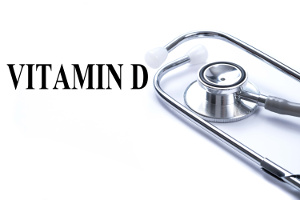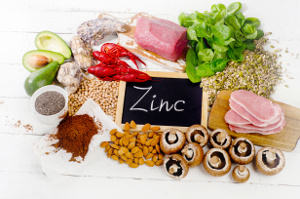- and why are deficiencies so common?
 Magnesium plays a vital role in the body’s calcium distribution and is involved in over 300 enzyme processes that are relevant for our bones, circulatory system, muscles, nervous system, blood pressure, blood sugar levels, immune system, and utilization of vitamin D. For that reason, too little magnesium increases your risk of osteoporosis, diabetes, cardiovascular disease, migraine headaches, infections, PMS, plus anxiety and other neurological disorders. This is highlighted in a review article published by Medical News Today. It is therefore important to be aware of all the overlooked factors that may cause a magnesium deficiency.
Magnesium plays a vital role in the body’s calcium distribution and is involved in over 300 enzyme processes that are relevant for our bones, circulatory system, muscles, nervous system, blood pressure, blood sugar levels, immune system, and utilization of vitamin D. For that reason, too little magnesium increases your risk of osteoporosis, diabetes, cardiovascular disease, migraine headaches, infections, PMS, plus anxiety and other neurological disorders. This is highlighted in a review article published by Medical News Today. It is therefore important to be aware of all the overlooked factors that may cause a magnesium deficiency.
 The summer sun is our primary source of vitamin D, and previous population studies have suggested that vitamin D may help prevent breast cancer from developing. Danish scientists have looked closer at this relation and found that women from 50 years of age and older who spend a lot of time outdoors – especially between 10 am and 3 pm – have a lower risk of breast cancer. This is important knowledge because it takes years for breast cancer to develop. Vitamin D appears to have a number of different anti-cancer mechanisms, which is why it is vital for us humans to get plenty of the nutrient throughout life.
The summer sun is our primary source of vitamin D, and previous population studies have suggested that vitamin D may help prevent breast cancer from developing. Danish scientists have looked closer at this relation and found that women from 50 years of age and older who spend a lot of time outdoors – especially between 10 am and 3 pm – have a lower risk of breast cancer. This is important knowledge because it takes years for breast cancer to develop. Vitamin D appears to have a number of different anti-cancer mechanisms, which is why it is vital for us humans to get plenty of the nutrient throughout life.
- and throughout life
 Vitamin D is important for a strong immune defense, healthy bones and cardiovascular system, cancer prevention, and for the support of many other essential body functions. However, it is not enough to follow the official guidelines for intake levels or to rely on blood tests. According to Carsten Carlberg, a professor at the University of Eastern Finland (UEF), the explanation lies in the fact that we humans respond widely different to vitamin D, so the optimal vitamin D dose varies from one individual to another. Based on years of research, Carsten Carlberg therefore advises all adults living at northern latitudes to take 100 micrograms of vitamin D daily throughout the winter period, just to be safe. Earlier studies indicate that the official recommendations for vitamin D are based on a miscalculation that has had fatal consequences for public health.
Vitamin D is important for a strong immune defense, healthy bones and cardiovascular system, cancer prevention, and for the support of many other essential body functions. However, it is not enough to follow the official guidelines for intake levels or to rely on blood tests. According to Carsten Carlberg, a professor at the University of Eastern Finland (UEF), the explanation lies in the fact that we humans respond widely different to vitamin D, so the optimal vitamin D dose varies from one individual to another. Based on years of research, Carsten Carlberg therefore advises all adults living at northern latitudes to take 100 micrograms of vitamin D daily throughout the winter period, just to be safe. Earlier studies indicate that the official recommendations for vitamin D are based on a miscalculation that has had fatal consequences for public health.
 Zinc is of vital importance to the immune defense, our mental balance, fertility, skin, hair, sense of taste, and numerous other functions. According to a new study that is published in Current Research in Physiology, zincinteracts closely with vitamin D and is important for our cells’ ability to absorb vitamin D. Conversely, vitamin D supports the uptake of zinc in the intestines and supports various zinc-dependent cell functions. According to the new study, lack of one or both nutrients can result in a host of different problems such as infections, poor wound healing, muscle diseases, cardiovascular disease, neurological disorders, osteoporosis, cancer, and many other diseases. This is a problem because zinc and vitamin D deficiencies are rather common – mainly because of unhealthy eating habits, lack of sunlight, ageing, overweight, and the use of certain types of medicine.
Zinc is of vital importance to the immune defense, our mental balance, fertility, skin, hair, sense of taste, and numerous other functions. According to a new study that is published in Current Research in Physiology, zincinteracts closely with vitamin D and is important for our cells’ ability to absorb vitamin D. Conversely, vitamin D supports the uptake of zinc in the intestines and supports various zinc-dependent cell functions. According to the new study, lack of one or both nutrients can result in a host of different problems such as infections, poor wound healing, muscle diseases, cardiovascular disease, neurological disorders, osteoporosis, cancer, and many other diseases. This is a problem because zinc and vitamin D deficiencies are rather common – mainly because of unhealthy eating habits, lack of sunlight, ageing, overweight, and the use of certain types of medicine.
 Magnesium plays a vital role in the body’s calcium distribution and is involved in over 300 enzyme processes that are relevant for our bones, circulatory system, muscles, nervous system, blood pressure, blood sugar levels, immune system, and utilization of vitamin D. For that reason, too little magnesium increases your risk of osteoporosis, diabetes, cardiovascular disease, migraine headaches, infections, PMS, plus anxiety and other neurological disorders. This is highlighted in a review article published by Medical News Today. It is therefore important to be aware of all the overlooked factors that may cause a magnesium deficiency.
Magnesium plays a vital role in the body’s calcium distribution and is involved in over 300 enzyme processes that are relevant for our bones, circulatory system, muscles, nervous system, blood pressure, blood sugar levels, immune system, and utilization of vitamin D. For that reason, too little magnesium increases your risk of osteoporosis, diabetes, cardiovascular disease, migraine headaches, infections, PMS, plus anxiety and other neurological disorders. This is highlighted in a review article published by Medical News Today. It is therefore important to be aware of all the overlooked factors that may cause a magnesium deficiency.







 Most people are unaware of vitamin C’s key role in mental health and mood. According to a large population study that is published in Frontiers in Nutrition, having higher levels of
Most people are unaware of vitamin C’s key role in mental health and mood. According to a large population study that is published in Frontiers in Nutrition, having higher levels of 


 The summer sun is our primary source of
The summer sun is our primary source of 
 Zinc is of vital importance to the immune defense, our mental balance, fertility, skin, hair, sense of taste, and numerous other functions. According to a new study that is published in Current Research in Physiology,
Zinc is of vital importance to the immune defense, our mental balance, fertility, skin, hair, sense of taste, and numerous other functions. According to a new study that is published in Current Research in Physiology,  "After about one week of taking the Q10 supplement I could feel a huge difference," says 23-year old Alan Piccini, who has been suffering from extreme fatigue and muscle aches ever since he was a child.
"After about one week of taking the Q10 supplement I could feel a huge difference," says 23-year old Alan Piccini, who has been suffering from extreme fatigue and muscle aches ever since he was a child. “Taking capsules with co-enzyme Q10 has freed me of the severe side effects of my cholesterol lowering medicine,” Mrs Franken explains.
“Taking capsules with co-enzyme Q10 has freed me of the severe side effects of my cholesterol lowering medicine,” Mrs Franken explains.